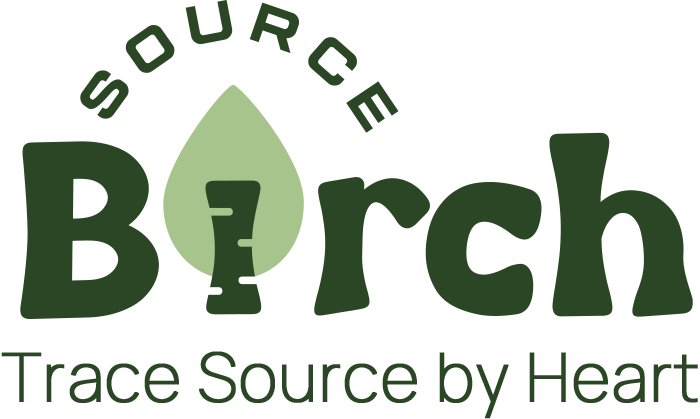Birch Sap: Nature's Elixir for Health and Hydration – A Deep Dive into Its Benefits and Uses
Birch Sap: Nature's Elixir for Health and Hydration – A Deep Dive into Its Benefits and Uses

In an era dominated by artificial functional drinks and overly processed beverages, a centuries-old natural alternative is gaining well-deserved recognition: birch sap. Tapped directly from birch trees for a short period each spring, this clear, slightly sweet liquid is more than just a traditional folk remedy; it's a naturally occurring functional drink packed with a unique profile of nutrients that support overall well-being. From the forests of Northern Europe to health-conscious communities worldwide, birch sap is celebrated for its hydrating properties, mineral content, and potential health benefits. This article delves deep into what makes birch sap a remarkable healthy alternative and how you can harness its power for improved vitality.
1. What Exactly is Birch Sap?
Birch sap, often referred to as birch water, is the xylem sap of the birch tree (Betula lenta, Betula papyrifera, Betula pendula, or Betula pubescens). It flows naturally for a few weeks in early spring, typically from late March to mid-April, when the ground begins to thaw, and the tree moves stored nutrients from its roots up to its branches to prepare for new growth. The sap is collected by drilling a small hole into the trunk, inserting a tap, and allowing the liquid to drip into a container. It has a very subtle, slightly sweet taste, often described as refreshing with a hint of earthy notes.
2. A Rich Historical Tapestry: Traditional Uses of Birch Sap
For centuries, birch sap has been a staple in traditional cultures across Scandinavia, Eastern Europe, Russia, and parts of North America. It was historically consumed as a springtime tonic, believed to cleanse the body after long winters and provide essential nutrients when fresh produce was scarce. Ancient texts and folk remedies often tout its uses for promoting vitality, aiding digestion, and supporting skin health, reflecting a deep-rooted understanding of its natural properties long before modern scientific analysis. This rich history underscores its long-standing reputation as a health-promoting beverage.
3. The Nutritional Powerhouse Within
Despite its clear appearance, birch sap is far from just water. It contains a unique blend of naturally occurring compounds that contribute to its health-promoting profile. Key components include:
- Minerals: Electrolytes like potassium, magnesium, calcium, manganese, and zinc, crucial for hydration and various bodily functions.
- Vitamins: Small amounts of B vitamins and Vitamin C.
- Amino Acids: Essential building blocks for proteins.
- Natural Sugars: Fructose and glucose, providing a mild sweetness without the high glycemic load of refined sugars.
- Antioxidants: Compounds like polyphenols and flavonoids that help combat oxidative stress.
- Xylitol: A natural sugar alcohol known for its dental health benefits.
4. Unveiling the Health Benefits of Birch Sap
The rising popularity of birch sap is largely attributed to its impressive array of potential health benefits, aligning perfectly with the demand for functional beverages.
4.1. Superior Hydration and Electrolyte Balance
Just like coconut water, birch sap is an excellent natural hydrator. Its natural electrolyte content (potassium, magnesium, calcium) makes it effective for replenishing fluids and minerals lost through daily activities or exercise, offering a healthier alternative to sugary sports drinks.
4.2. Natural Detoxification and Cleansing Properties
Traditionally, birch sap has been used as a natural diuretic, believed to support kidney function and promote the elimination of toxins from the body. While more scientific research is needed, its role in fluid balance supports this historical use.
4.3. Boosting Skin and Hair Health
Rich in minerals and vitamins, birch sap is often praised for its ability to promote healthy skin and hair. Its anti-inflammatory and antioxidant properties may help soothe skin irritations and contribute to a radiant complexion. Some even use it as a natural hair rinse to enhance shine and strength.
4.4. Supporting Immune Function
The presence of trace minerals and vitamins, alongside amino acids, makes birch sap a potentially beneficial component for immune system support. Antioxidants work to protect cells, contributing to overall resilience.
4.5. Digestive Wellness
Being a natural, unprocessed liquid, birch sap is gentle on the digestive system. Its natural compounds may aid in maintaining a healthy gut microbiome, which is foundational for overall health.
5. Birch Sap vs. Other Healthy Beverages: A Comparison
| Feature | Birch Sap | Coconut Water | Green Tea | Kombucha |
|---|---|---|---|---|
| Origin | Tree sap (birch) | Fruit (coconut) | Plant leaves (Camellia sinensis) | Fermented tea |
| Taste | Mild, slightly sweet, earthy | Sweet, nutty, tropical | Earthy, often bitter, grassy | Tangy, fizzy, vinegar-like |
| Electrolytes | High | High | Low | Moderate |
| Probiotics | No | No | No | Yes |
| Caffeine | Trace/None | No | Yes (moderate) | Yes (low) |
| Detox claims | Traditional diuretic | Hydration/Electrolyte support | Antioxidant support | Gut health/Antioxidant |
| Sugar type | Natural fructose/glucose, xylitol | Natural fructose/glucose | Minimal (unless added) | Natural sugars (fermented) |
This table highlights how birch sap stands out as a unique, naturally low-sugar, electrolyte-rich option that doesn't rely on fermentation (like kombucha) or significant caffeine (like green tea) for its functional benefits.
6. How to Incorporate Birch Sap into Your Diet
Birch sap is incredibly versatile and can be enjoyed in various ways:
- As a refreshing drink: Best served chilled, straight from the bottle.
- Smoothie base: Use it as a liquid base for smoothies to add natural hydration and nutrients.
- Cooking and Baking: Can replace water in recipes for a subtle sweetness and mineral boost.
- Post-workout recovery: Its electrolyte profile makes it an excellent choice for rehydration after physical activity.
7. Choosing High-Quality Birch Sap
When purchasing birch sap, look for products that are:
- 100% pure birch sap: Avoid products with added sugars, artificial flavors, or sweeteners.
- Sustainably sourced: Ethical harvesting practices ensure the long-term health of birch forests.
- Minimally processed: Raw or pasteurized to retain its natural nutrient profile. Check labels for organic certifications if available.
8. Sustainability and Ethical Sourcing
The harvesting of birch sap is a delicate process that relies on the health of the birch tree. Sustainable practices ensure that tapping doesn't harm the tree and allows it to continue its natural growth cycle. Reputable producers prioritize environmentally friendly methods to protect this valuable natural resource for future generations.
9. Potential Side Effects and Considerations
Birch sap is generally considered safe for consumption. However, individuals with birch pollen allergies might experience cross-reactivity and should approach with caution. As with any food or drink, moderation is key. If you have specific health conditions or are on medication, it's always advisable to consult a healthcare professional before making significant dietary changes.
10. The Future of Functional Beverages: Embracing Nature's Best
As consumer demand shifts towards more natural, transparent, and health-centric options, birch sap is perfectly positioned to become a mainstream functional beverage. Its unique nutritional profile, traditional heritage, and refreshing taste offer a compelling alternative to synthetic drinks. Embracing birch sap means choosing a drink that not only quenches your thirst but also connects you to nature's ancient wisdom for health and vitality. It's a testament to the idea that sometimes, the best solutions are the ones nature perfected long ago.
